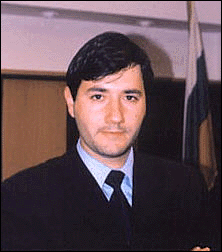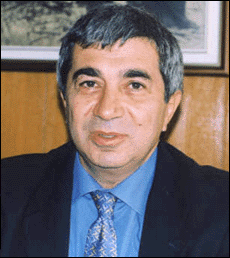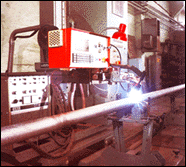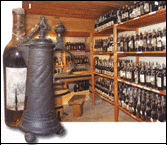 ASSETS MAY ONLY GO UP ASSETS MAY ONLY GO UP |
"It is obvious that Bulgaria has stepped on a good track and it is by far the most stable and prosperous post-communist nation in the Balkan region. I should mention one thing however. Right now this is a good place for business because Bulgaria will be profitable in the new future if you invest now. Assets are going to go up in value several fold in the next few years. And those who get in now are going to reap the benefits in five years time. I would advise anyone who has serious intentions and investment potential to look in detail at what we can offer; and we can offer much", Deputy Minister of Economy Nikola Yankov said.

"Bulgaria was and remains the most stable country in South-Eastern Europe", sources from the American Chamber of Commerce in Bulgaria added. "It remains the most suitable country for investments because it is the only one since 1989 that has had a non-violent and democratic transition."
"Bulgaria has clearly made further progress towards becoming a functioning market economy," the European Commission announced in 2001 in its regular report on Bulgaria's progress towards EU accession.
"Bulgaria was and remains the most stable country in South-Eastern Europe", sources from the American Chamber of Commerce in Bulgaria added. "It remains the most suitable country for investments because it is the only one since 1989 that has had a non-violent and democratic transition."
"Bulgaria has clearly made further progress towards becoming a functioning market economy," the European Commission announced in 2001 in its regular report on Bulgaria's progress towards EU accession.
The latest EU assessment was much more favourable than the one made in 2000, according to which "Bulgaria's progress in the creation of a market economy has been limited by the absence of a commitment to market-oriented economic policies". Still, Bulgaria was excluded from the group of the first ex-communist countries that will be accepted into the EU, as despite its unquestionable progress, it has a long way to go in order to be admitted as an equal.
Till 1990, the Bulgarian economy was modeled to produce specific goods for specific markets namely the Soviet Union and the now defunct COMECON , regardless of the basic laws of supply and demand. By the middle of the 80-s of last century, Bulgaria was considered as the source for high-tech, chemicals and pharmaceuticals, biotechnologies, machine tools and industrial trucks.

"I can say that Bulgaria has a good potential in all labor consuming sectors of the economy, including in the sector of "soft" labor", Bojidar Danev, Chairman of the Bulgarian Industrial Association (BIA) said. "That's why this country has a good potential, enhanced also by its geographical position, climate conditions…Bulgaria has a lot of potential in the software and hardware design. There are several companies that are already working with Microsoft and with well-known companies in Europe and USA", he added.
Vassil Vassilev, Chairman and Ceo of the oldest Bulgarian private company,Vassilevi Brothers Group (founded in 1894), is adamant that Bulgaria has still to exploit an unexpected benefit - its substantial potential to produce organic food. The neglect of arable land after 1990, the emergence of numerous small-sized farms and the lack of funds for fertilizing have allowed Bulgarian soil the ten years necessary to recuperate and cleanse. According to Vassilev, currently more than 50% of Bulgaria's arable land is suitable for growing organic food, which is much more than the token 2% in France or the 15% in Sweden. With a strategy in place, organic food production may well bring about an economic boom propped with incentives for auxiliary industries.
 | 
It might sound as an exaggeration, but the substantial efforts dedicated in the late 70-s and the 80-s to the development of a specific industry designed to supply the whole complex of food processing and production industries, generated an entirely new market inside Bulgaria - the production of beer, which gradually took over some of the share of the traditional high-quality Bulgarian wines. Now, this development has resulted in a surge of the business of beer breweries, almost exclusively controlled by two large foreign beer companies.
The privatization of the largest Bulgarian beer breweries by Interbrew and Brewinvest, which today share among themselves about 60% of the Bulgarian beer market, became the incontestable manifestation of the superiority of private entrepreneurship.
The expertise and some of the potential in the sphere of biological products related technologies are still alive and waiting to be tapped.
Bulgaria used to be one of the world's biggest producers of cigarettes, by far the biggest producer in the former East Block and was famous - again within the same confines - for the products of its food industry and wines.

That was in the 80's. In the early 90's things started to change. Now many of the old state-owned industrial giants have declined or have been broken into smaller facilities. Those that have not been privatized have more or less been neglected or moved to liquidation or bankruptcy procedures. "Unfortunately, we have delayed privatization for a long time. The other East Block countries managed to finish with the privatization process in 2-3 years time starting in 91-92 and ending in 94-95, while we have started the active process of privatization here in 95-96 and this delay has been at a great expense to us," Deputy Minister Nikola Yankov said.
Bulgaria's specialization in high-tech electronics industry (by any standard, not only by the standards of the former COMECON, that served as a self-contained common market arrangement for all former socialist states in Central and East Europe) generated additional fallout whose impact is now becoming fully manifested. Bulgaria has maybe the highest number of top-class software developers per capita in the world, and for years was suspected of being a paradise for hackers. Fortunately, most of these "prime suspects" are now a decade older and deep into businesses of their own, while the traditions of their generation allowed Bulgaria to preserve its potential as a genuinely high-tech haven, fueling the prosperity of some of the largest software companies in Europe.
Although the manufacturing arm of the computer sector in Bulgaria has declined, the number of hi-technology firms in the private sector have sprung up starting from scratch in the field of software development and engineering. Furthermore, Bulgaria is becoming a center where multinational companies outsource many engineering projects. They find local partners and assign projects for execution on a remote basis while sharing information over the Internet. Big multinationals are gradually moving in to create engineering knowledge centers with local staff. Instead of trying to recruit local engineers and send them abroad they prefer to set up a center equipped with good communication facilities and assign projects from their units all over the world for execution here.
Regional conditions have started to change as well. "At present we are living a very peculiar situation in the Balkans. It's the first time in many years that we are enjoying governments in the Balkan countries with good will towards each other. This provides conditions we should all benefit from", Bojidar Bojinov, Chairman of the Bulgarian Chamber of Commerce and Industry (BCCI), claims. "The Association of the Balkan Chambers of Commerce was established in 1994 upon our initiative. Those were years of war in the Balkans, and the result was the complete absence of contacts among the governments in the region. Our main purpose was to create a free zone in the region.

Today this is a fact. There are 150 million people living in this part of the world, this is a large territory that is not divided by religion or nationality conflicts, it is divided only in terms of different life standards. These 150 million people speak about 10 completely different languages such as Turkish, Bulgarian, Rumanian, Albanian, Greek, and are totally different; furthermore Bulgaria, being at the hub of the Balkans, has a lot of potential to establish a sound infrastructure of links to neighboring states. If money is invested in the Balkans, then the region would not cause any problems to Europe and the world", Bojinov stressed. |

